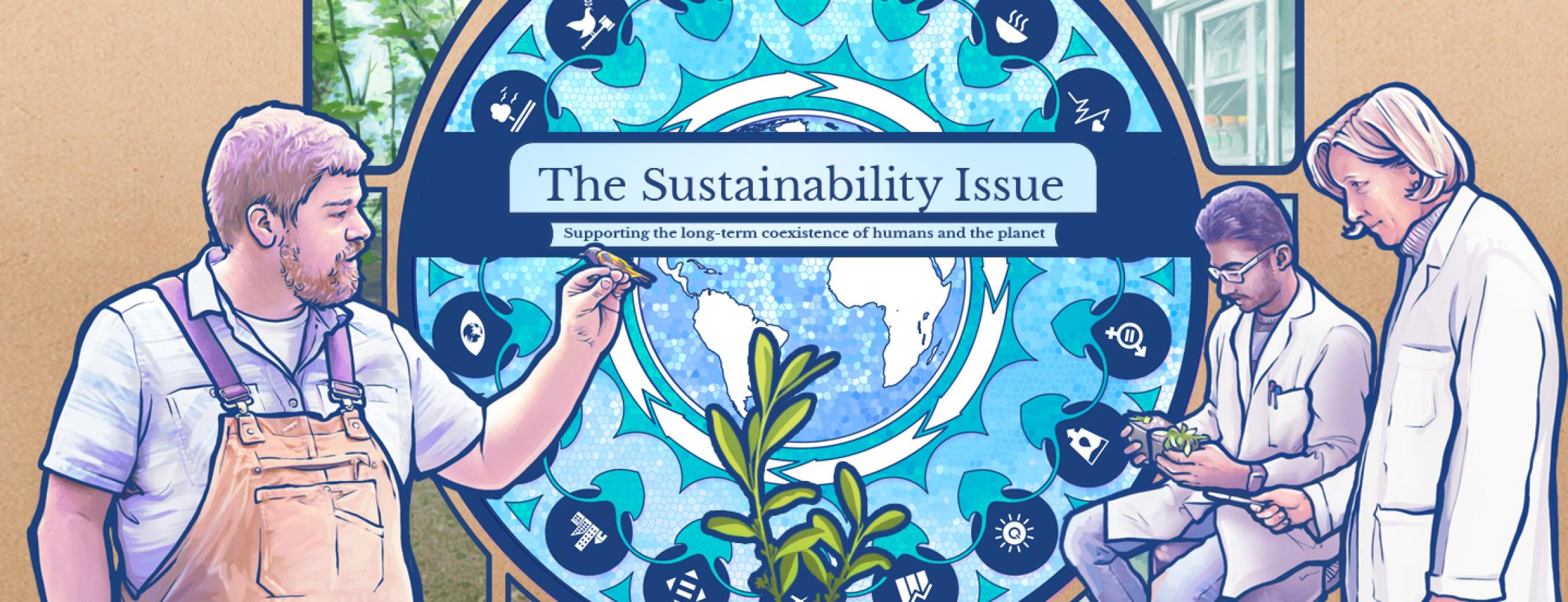The David G. Maskalick and Kathleen A. Maskalick Biodiversity Healthcare Seed Grant program is committed to promoting the protection of biodiversity and supporting the prevention of mass extinction of life on earth. Funds from the program aim to further knowledge regarding the health and survival of all life, natural resources, humanity, and commerce.
David Maskalick, a 1978 graduate in biochemisty, and Kathleen Maskalick established the program in 2021. The goal of the grants is to support the collection of preliminary data for submission of larger external grants focused on the protection of biodiversity, and to stimulate and foster research on biodiversity within the Eberly College of Science.
The inaugural Maskalisk seed grant was awarded to Tomás A. Carlo Joglar, associate professor of biology at Penn State, by the Eberly College of Science Office for Innovation who oversee the program. Carlo Joglar was awarded the grant for his project titled: “Evaluating the effects of plant functional traits and outreach on biodiversity and human responses to reforestation actions on tropical urban landscapes.”
In his project, Carlo Joglar and graduate student Julissa Irizarry conducted landscape-level experiments to test how plant functional traits and community outreach affect native animal biodiversity in urban landscapes on the island of Puerto Rico. The funds were used to conduct pilot surveys in all or most of 20 pre-selected experimental urban areas to talk with families and gauge their willingness to participate in the experiment.

“The Maskalick seed grant funds were instrumental in helping us complete close to 300 bird surveys in 20 field sites—urban residential areas, with three transects within each site—and in reaching out to the communities within these survey areas in order to ask about their willingness to participate in an urban greening experiment,” said Irizarry whose Ph.D. project is supported by the grant. “This data will give us a response rate, which will help us evaluate the feasibility of the project as we envision it, as well as providing important supporting data for the grant Tomás and I are working on for the National Science Foundation.”
Carlo Joglar’s lab studies animal-plant interactions with an emphasis on mutualistic seed dispersal by frugivores (i.e., fruit-eating animals that disperse seeds effectively). They use field-based research, experimentation, and models to answer fundamental questions about the patterning, organization, and resilience of plant and animal communities.
The second annual Maskalick seed grand was awarded to Todd LaJeunesse, professor of biology at Penn State, by the Eberly College of Science Office for Innovation. LaJeunesse was awarded the grant for his project titled: “Investigation into and Characterization of Host-Generalist and Host-Specialist Coral Endosymbionts,” which is led by graduate student Caleb Butler.
This biodiversity grant provided funds for laboratory supplies and travel costs to Palau to study coral biodiversity and its physiological ecology to better understand the function of the single-celled organisms that live with the corals and how they are critical for conservation efforts and forecasting the future of reef-building corals and the ecosystems they construct.

“We are grateful for this funding,” said LaJeunesse. “As one of the leading laboratories in the world conducting this research, trips to places like Palau are precious opportunities. These additional funds help maximize our efforts and the quality of science that we are able to achieve. Our efforts to accurately resolve the diversity of symbionts critical to coral health are leading to breakthroughs in understanding about their capacity to endure and adapt to climate change.”
Research in the LaJeunesse lab focuses on the evolutionary ecology of mutualistic symbioses—Interactions between two or more species where each species benefits—mainly the associations between corals and the single-celled dinoflagellates that live within their tissues. These associations form the basis of one of the most biologically diverse and threatened marine ecosystems on the planet. Through the use of various genetic-based approaches in laboratory and field settings they examine ecological, biogeographic, and phylogenetic patterns in order to deduce fundamental ecological and evolutionary processes. The research seeks to understand how coral communities globally are responding ecologically and evolutionarily to climate warming. The symbionts of corals, Symbiodinium, are ideal for examining broader questions about microbial biodiversity, clonality, sexual recombination, dispersal, speciation, and ecological/physiological specialization, among other topics.
